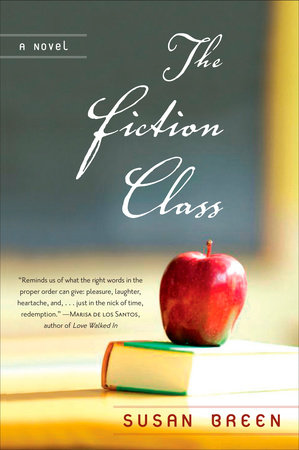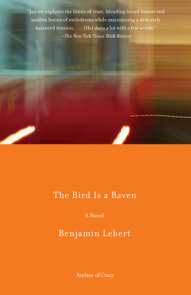READERS GUIDE
Questions and Topics for Discussion
NOTE: We recognize that reading is a personal experience, and we hope that the author interview and questions below will provide a springboard to provoke a lively discussion.
INTRODUCTION
Arabella Hicks helps her students focus on their writing, and she encourages them to nurture the distinctive voice that emerges on paper as a result of that focus. For some of them, it’s the first time any of them have ever had their written work taken seriously.
Unfortunately, it’s becoming increasingly harder for Arabella to practice what she preaches. She’s been writing the same novel for seven years, and lately her time in front of the computer has involved more games of Spider Solitaire than she’d like to admit. Revision consists of considering alternate punctuation. She can’t find an appropriate ending for her novel. Also, she’s distracted. Her mother, ailing from Parkinson’s and living in a nearby nursing home, still has enough energy in her to leave Arabella feeling angry and depleted each time she visits. And these visits, every Wednesday evening after Arabella’s fiction class, are becoming more and more important. As her mother’s health begins to decline rapidly, Arabella must find a way to move their relationship past its previous obstacles and into a place where both women can feel comfortable admitting they need—and love—one another.
Susan Breen’s The Fiction Class is a work of wit and intelligence with a hefty emotional weight, a narrative that teaches us as much about the craft of writing fiction as it does the power of memory, love, and compassion.
ABOUT SUSAN BREEN
Susan Breen teaches fiction classes for Gotham Writers’ Workshop in Manhattan. Her short stories have been published by a number of literary magazines, among them American Literary Review and North Dakota Quarterly. She is also a contributor to The Writer and Writers’ Digest. She has an M.A. from Columbia University and has worked as a reporter for Fortune magazine and an editor for the Foreign Policy Association. She lives in Irvington, NY with her family, two dogs and one cat.
A CONVERSATION WITH SUSAN BREEN
Q. How many years have you taught at the Gotham Writers’ Workshop in Manhattan? And how similar was the structure of Arabella’s fiction class to the way you run your own writing courses? Did you have any emotional or philosophical difficulty in “lending” Arabella your lecture notes and writing exercises, or did you give her material completely independent of your own?
A. I’ve been teaching beginning and advanced fiction classes for GWW since 2002. One of the most difficult parts of writing the book was trying to capture the rhythm of a fiction class, and of course, each class has a different rhythm because the personalities of the students vary so widely. In the first draft of The Fiction Class, I included my complete lectures, which went on for pages and pages, but I realized, when I read through it, that reading a whole lecture can be incredibly boring. So I chopped and shaped. I think if you were to sit in on one of my classes, you might hear me say some of the same things that Arabella says in The Fiction Class, but I think it’s okay to borrow from yourself. In fact, I think that’s what writing is.
Q. By the end of The Fiction Class, Arabella has formed a resonant, fairly symbiotic relationship with her students. Arabella’s extenuating circumstances aside, how rare (or common) is it for students and instructor to form a bond of mutual respect and admiration? What is the biggest obstacle to the teacher/student relationship, and how often do you run across it?
A. The most important thing I do as a fiction teacher is create an environment of trust so that my students are able to share their work. If a student does not feel comfortable in the class, she cannot take risks, which means she cannot write. So friendship is a very important element of the class and I consider many of my students to be good friends. The only real obstacle I’ve ever encountered is that some people simply do not want to change their work; they want me to read it and hand them the name of an agent. It is often a surprise for students to realize just how much work is involved in writing. But I generally harangue them into it by the end of the class.
Q. Arabella deals with a particularly vicious bout of writers’ block in this novel. How often do you suffer from writers’ block, and how do you manage to begin writing again?
A. I’ve never suffered from writers’ block because I don’t have the time for it. When my children were little, I had only fifteen-minute increments for writing; often I found if I was pretending to wash the dishes, they would ignore me for a bit. Even now, I spend a good part of my day running around with kids and so usually, by the time I sit down to write, the words have been building up inside of me for some time and it’s just a question of getting them on the page. However, there is something about a blank page that makes me very nervous, so when I am starting something new, I will put any words on the page, even ridiculous ones, so that I do not have to see that whiteness.
Q. Is it safe to assume that, like Arabella, you emphasize the importance of writing, and not publishing, to your students? That being said, how do you view the world of publishing these days? What advice would you offer to a writer who—having spent a lot of time crafting his/her work—wants to publish a novel?
A. Occasionally one of my students will tell me he doesn’t care about publication, and I always think he’s lying. I believe every writer wants to see his words in print, and why not? I didn’t deal with the details of publication in the book because the information seemed too specific to get across in one novel; for example, I would have to know about what genre the writer was working in. As to advice, I think my own example is a very encouraging one. I started off with absolutely no connections in the publishing world. I am not related to anyone famous, I am neither tall nor gorgeous nor wealthy and yet, here I am, filling out a reading guide. All you can really do is write and write and not quit.
Q. An important element of the novel is the Arabella’s relationship with her mother. Is that autobiographical?
A. My mother and I did have a strained relationship after she went into a nursing home. I think we both felt like failures, especially me. Every time I visited, we fought, and over ridiculous things. Then I got my job at Gotham and I was surprised to realize that my mother loved hearing about my class. She actually loved to listen to my lectures, loved listening to me sit on her bed and declaim about plot or point of view. My fiction class brought us together. After she died, I realized what a gift it was that she and I were able to connect, so when I began to write The Fiction Class, it was very much on my mind that I wanted to write about a woman who was able to heal her relationship with her mother.
Q. What projects are you working on currently? Are you still writing short stories? What can we hope to see from you in bookstores in the near future?
A. I hope you will see many things from me in the future. At the moment I am working on a new novel about a woman and her son, told from the point of view of the mother. It takes place on tour with a traveling troupe of actors, and it has to do with a reinterpretation of A Christmas Carol.
DISCUSSION QUESTIONS




















